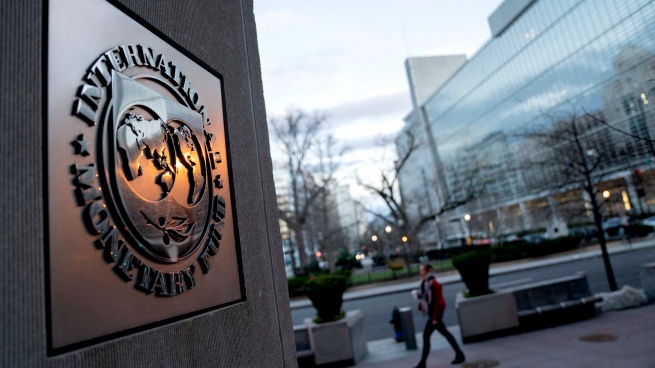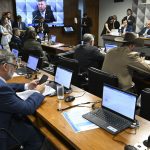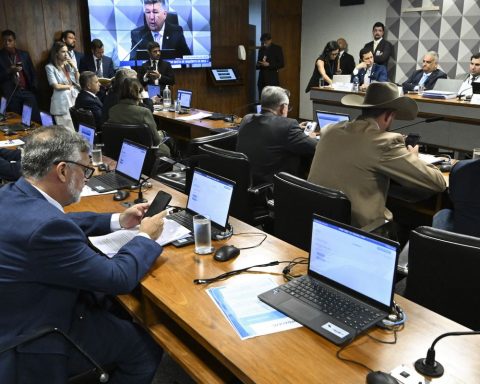The Executive Board of the International Monetary Fund (IMF) approved the first review of the Extended Facilities Agreement with Argentina, which enabled an immediate disbursement of around US$4,010 million.
According to the agency, all ongoing performance criteria met by the end of March 2022 and indicative targets; and initial progress was made on the structural front, in a context of heightened global uncertainty, he said in a statement.
“This marks the conclusion of an important initial step under the program to support the ongoing economic recovery and strengthen stability.”assured the managing director of the IMF, Kristalina Georgieva, on her Twitter account when announcing the agreement.
In this sense, the Minister of Economy, Martín Guzmán, assured in the same social network: “We continue to implement macroeconomic policies to strengthen growth with job creation and stability”.
The IMF Executive Board completed today the first review of the Extended Fund Facility arrangement for #Argentina. This marks the conclusion of an important initial step under the program to support ?? ongoing economic recovery and strengthen stability.
— Kristalina Georgieva (@KGeorgieva) June 24, 2022
Following the Executive Board discussion on Argentina, Georgieva noted that “the Argentine economy continues its post-pandemic recovery, but is affected by shocks associated with the war in Ukraine and broader global uncertainties.”
“Higher global food and energy prices are adding to inflationary pressures and challenging fiscal and reserve accumulation targets,” the Fund’s head said.
According to Georgieva, “despite these shocks, the authorities met all quantitative targets by the end of March 2022 and have made progress in implementing the program’s structural commitments.”
The first review of the Extended Facilities program was approved with which the debt taken with the IMF in 2018-2019 is refinanced.
We continue to implement macroeconomic policies to strengthen growth with job creation and stability. https://t.co/Db4zZmNsbq
– Martin Guzman (@Martin_M_Guzman) June 24, 2022
The IMF also welcomed the commitment of the Argentine authorities to implement policies in line with the objectives of the annual programsaid the agency in its statement.
the disbursement
The decision of the Executive Board allows an immediate disbursement of SDR 3 billion (about $4.01 billion) and marks the completion of an “important initial step” within the programhighlighted the agency.
“The authorities remain committed to the agreed multifaceted strategy to deal with persistently high inflation, including continuing to normalize policy interest rates in a manner consistent with achieving positive real interest rates,” stressed the managing director of the IMF.
Argentina’s 30-month agreement, with access to SDR 31.914 billion (equivalent to US$44 billion), was approved on March 25..
It seeks to “contribute to the economic recovery that Argentina is experiencing, as well as strengthen macroeconomic stability and continue to address Argentina’s historical challenges,” the IMF recalled.
“It provides Argentina with balance in the balance of payments and budget financing linked to specific measures to strengthen public finances, address the inflationary issue and increase the accumulation of reserves,” he added.
For Georgieva, in the context of “market volatility”, the efforts to strengthen and deepen the debt market in pesos, which is an essential pillar of the 30-month agreement, “remain critical, along with the firm implementation of the objectives prosecutors”.
“Continuous progress is needed in the implementation of the structural reform agenda,” he said, for which he considered that “the decisive implementation of the program’s policies will be essential to support Argentina’s economic recovery, strengthen macroeconomic stability and advance further in addressing its deep-seated challenges to lay the foundations for more sustainable and inclusive growth.”
In a paragraph of the document on threats to the ongoing program, the IMF continues to warn of exceptional risks, noting that “since the approval of the agreement, global risks have intensified not only because of the war in Ukraine, but also because of the resurgence of the pandemic, a rapid tightening of external financial conditions and a slowdown in the main emerging economies”.
“Meanwhile, policy implementation risks remain serious in the context of a very complex economic, social and political environment and ongoing wage and spending pressures,” the agency warned.


















